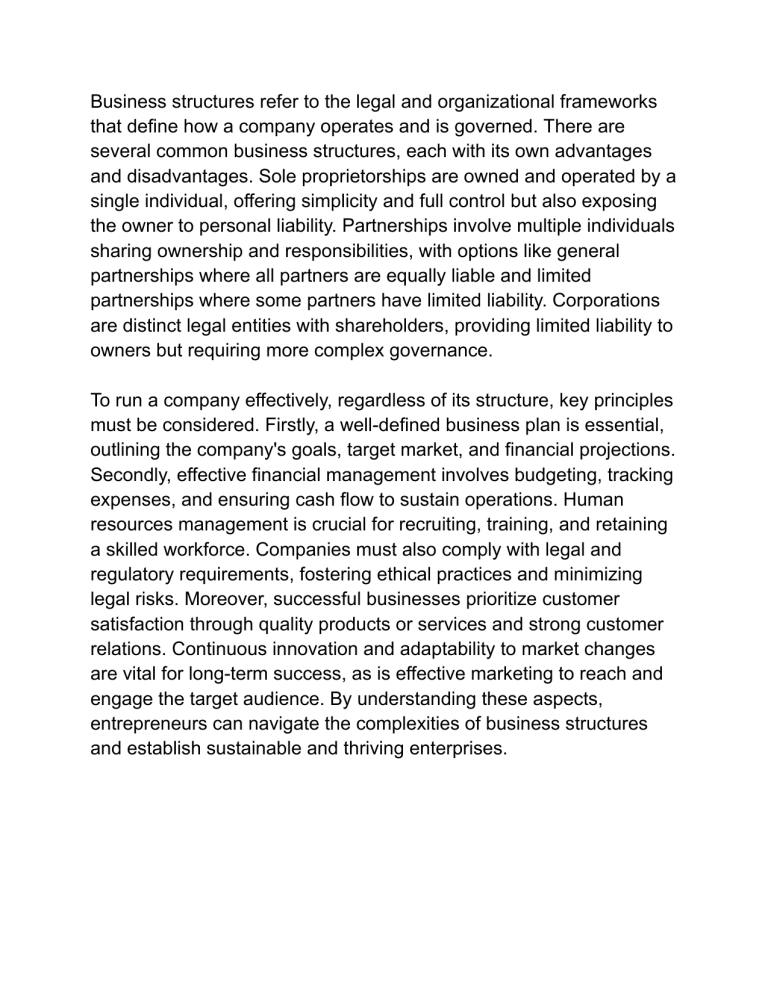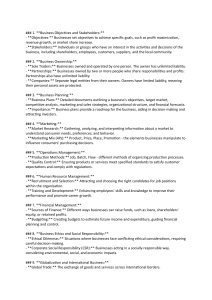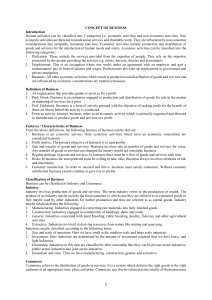
Business structures refer to the legal and organizational frameworks that define how a company operates and is governed. There are several common business structures, each with its own advantages and disadvantages. Sole proprietorships are owned and operated by a single individual, offering simplicity and full control but also exposing the owner to personal liability. Partnerships involve multiple individuals sharing ownership and responsibilities, with options like general partnerships where all partners are equally liable and limited partnerships where some partners have limited liability. Corporations are distinct legal entities with shareholders, providing limited liability to owners but requiring more complex governance. To run a company effectively, regardless of its structure, key principles must be considered. Firstly, a well-defined business plan is essential, outlining the company's goals, target market, and financial projections. Secondly, effective financial management involves budgeting, tracking expenses, and ensuring cash flow to sustain operations. Human resources management is crucial for recruiting, training, and retaining a skilled workforce. Companies must also comply with legal and regulatory requirements, fostering ethical practices and minimizing legal risks. Moreover, successful businesses prioritize customer satisfaction through quality products or services and strong customer relations. Continuous innovation and adaptability to market changes are vital for long-term success, as is effective marketing to reach and engage the target audience. By understanding these aspects, entrepreneurs can navigate the complexities of business structures and establish sustainable and thriving enterprises.






